6 things that have changed most in 60 years of farming
Farming is facing a huge transition right now, but it’s an industry that has never stood still.
The skill and passion of farmers both remain a constant, but the manner and methods used are continually evolving. As the old saying goes, “The only constant is change”.
Brian Reynolds has had a career in farm management spanning nearly 60 years, including 10 years managing almost 20,000 acres in Norfolk and Yorkshire for farming contractor Albanwise.
More recently, he has operated as chairman of the board for a large farm business in Suffolk.
He offers a personal perspective into the big changes that took place over the past 60 years.
See also: 9 ways to get into farming
1. Crop yields
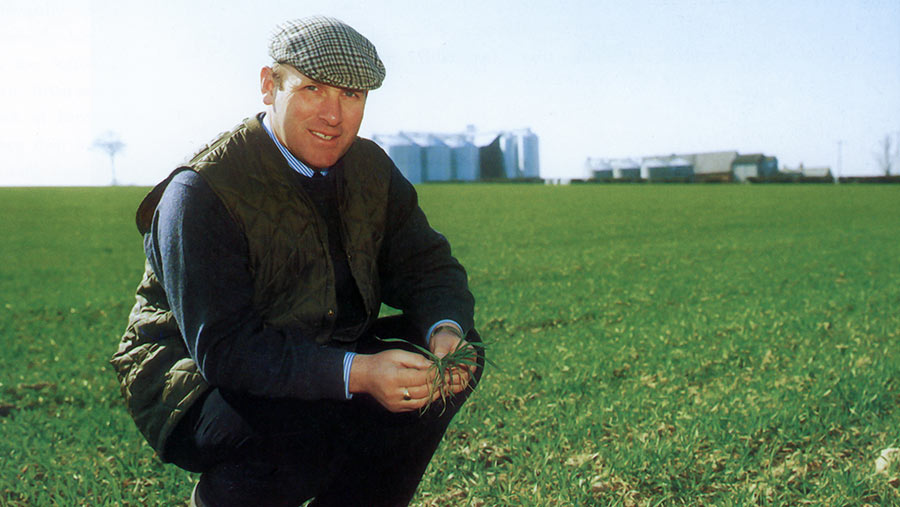
Brian Reynolds examining a crop in the late 1990s
One of the most striking developments has been the rise in crop yields. In the late 1960s, getting 5t/ha of winter wheat would have been considered a top crop, but the best growers are now consistently producing more than double that.
The graph hasn’t exclusively been going upwards, though. Defra figures show the UK average wheat yield peaked in 2015 at 9t/ha.
Yet in 1974 (admittedly an exceptional wheat year), Brian was managing a farm that secured a place in the British Guinness Book of Records, growing a crop of Maris Huntsman that yielded 10.808t/ha.
The industry still faces a problem of wheat yields reaching a plateau.
2. Machinery
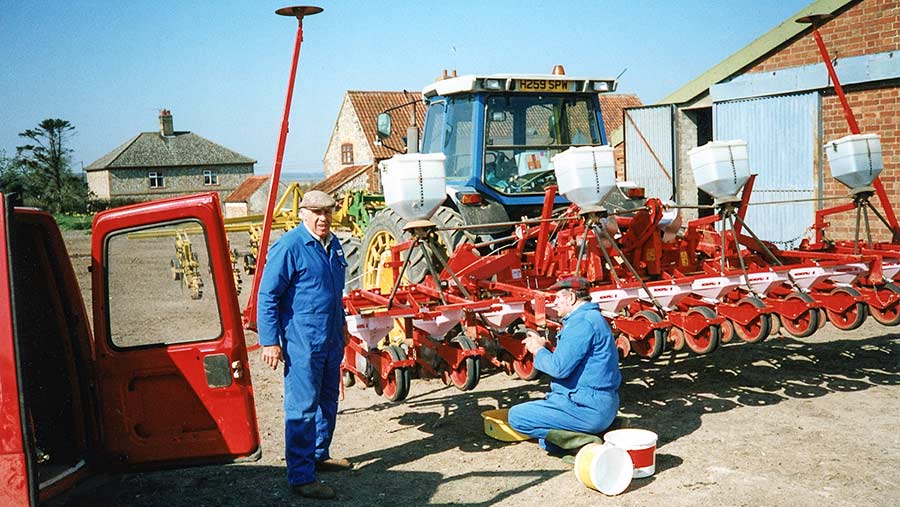
A new 12-row sugar beet drill pictured in 1988
When Brian went to study at Essex Institute of Agriculture in 1968, he had one lecture a week on the use of horses in farming and remembers that his grandfathers both still had one horse each.
Over the course of his career, machinery has grown both in size (sadly, the price tag has risen correspondingly).
In the 1950s, a 50hp tractor would have been considered a large machine; nowadays, 300hp-plus is readily available.
3. Manpower
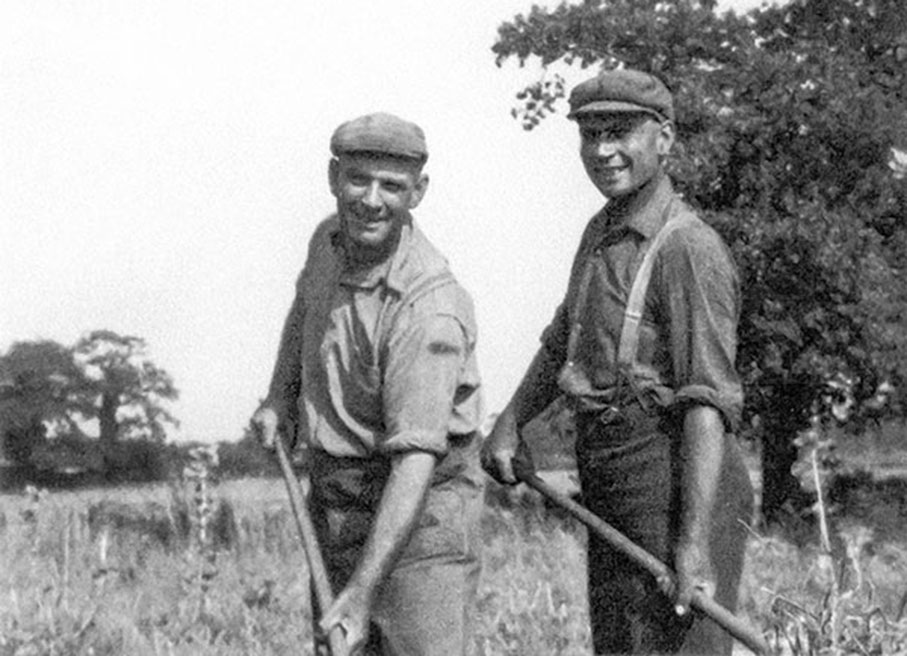
Brian’s father John (left) and uncle Frank in the early 1950s
It used to take six people to harvest 200 acres on Brian’s family farm back in the 1960s. Now it’s normal for one person to oversee 1,000 acres.
It was an incredibly physical job in those early years, shifting 18 stone bags of wheat by hand.
Mechanisation has brought many benefits, but the resulting reduction in labour has reduced the flexibility that can be necessary, especially at critical times such as the summer peak.
Brian often thinks the difference between a farmer and a good farmer can be 24 hours.
4. Tramlines
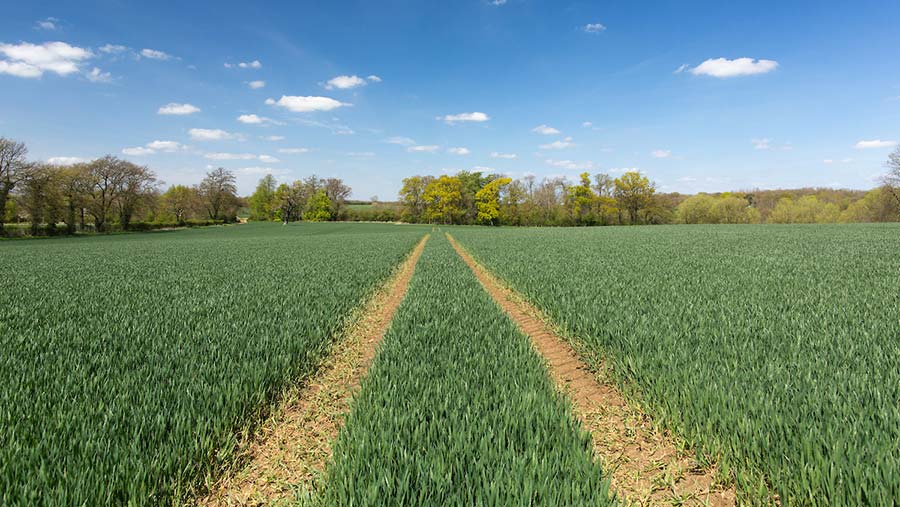
© Tim Scrivener
Brian was probably one of the first farmers in Suffolk to grow a crop of wheat with tramlines in it.
It was the 1970s and he had read about this new concept, so thought he would give it a go in an 11-acre block called Corner Field.
A Massey 30 drill was deployed with the slides blocked off where he wanted the tramline to go. When the crop first came up, people assumed the drill had suffered a blocked coulter.
But soon they realised what they were and how useful they were. Almost overnight, virtually everyone had tramlines.
5. Regulation
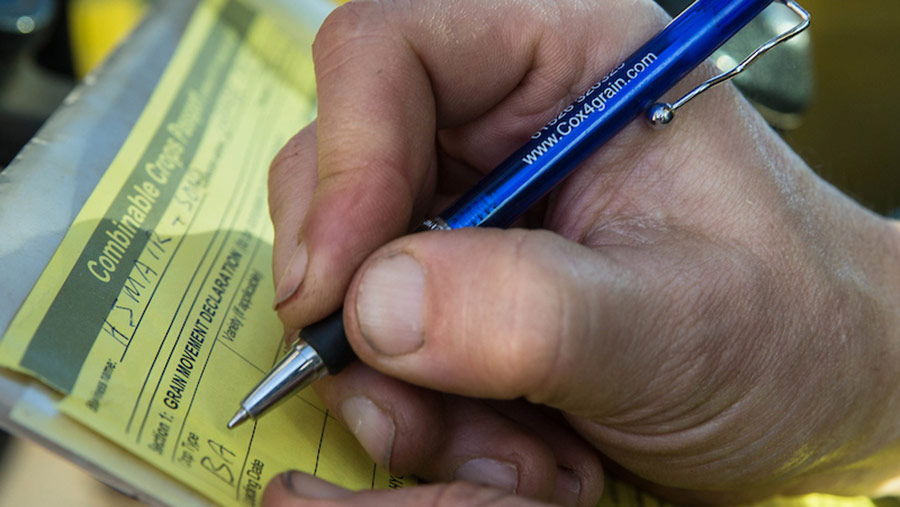
© Tim Scrivener
Few would argue that the amount of documentation and regulation required of farmers has dramatically increased.
Where Brian might differ from others is that in certain areas, he believes farming is still not regulated enough.
Take health and safety, for example. He doesn’t view this as regulation, rather he sees it as a necessity.
What gave him the most satisfaction at the end of his farming career was sending every member of staff home in the same state as they arrived at the start of the day.
He used to tell new tractor drivers, particularly students, when they started: “You may be 23, but act like you are middle-aged.”
6. Technology
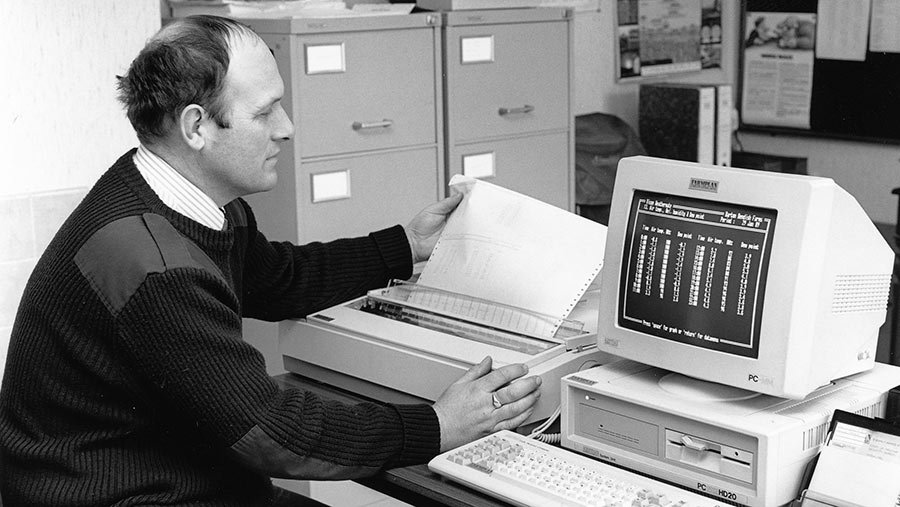
Brian’s first office computer installed in 1987 linked to a weather station
The introduction of new technology has been incredibly exciting. I saw my first “portable” computer while attending a Worshipful Company of Farmers course in the 1970s. It had to be wheeled in on an enormous trolley!
It is strange now to think back to when I was working for Velcourt in the mid-1980s that all our field records were written down. Three or four years later, everything was computerised.
Brian has written a farming memoir to help raise money for Parkinson’s UK. He also hopes it will inspire young people to consider a career in agriculture.
Copies cost £10 (including postage). To order your copy, email brianreynolds780@btinternet.com or visit Brian’s Just Giving page.
